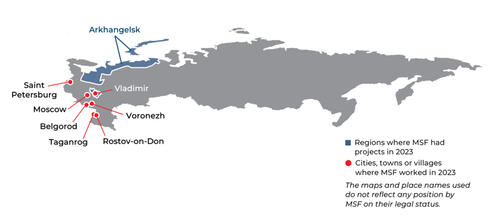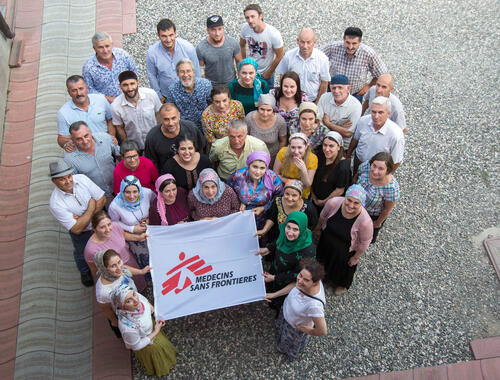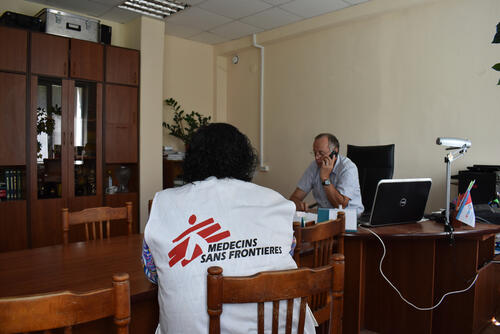We collaborated with health authorities and academic partners in the Arkhangelsk and Vladimir regions to reduce the burden of drug-resistant tuberculosis.
Our teams also worked on a study in collaboration with the Ministry of Health, which aimed to prove the effectiveness of all-oral novel short-course regimens for patients with drug-resistant tuberculosis. In 2021, more than 60 people were enrolled into the study in the regions of Arkhangelsk and Vladimir. By the end of 2021, the first patients completed their treatment and started the follow-up stage.
In Moscow and St. Petersburg, MSF partnered with two community-based NGOs, offering healthcare to vulnerable people, including those living with HIV.
Following the escalation of the war in Ukraine in 2022, MSF provided refugees seeking safety in Russia and displaced Russians with humanitarian aid. More than 15,400 received free medical, mental health and psychosocial support.
Featured
Our activities in 2023 in Russia
Data and information from the International Activity Report 2023.
44
44
3.4 M€
3.4M
1992
1992

- Try a different country, year, format, or topic.
- Clear one or more filters
Contact us

16 Malaya Dmitrovka street,
127006 Moscow,
Russian Federation




